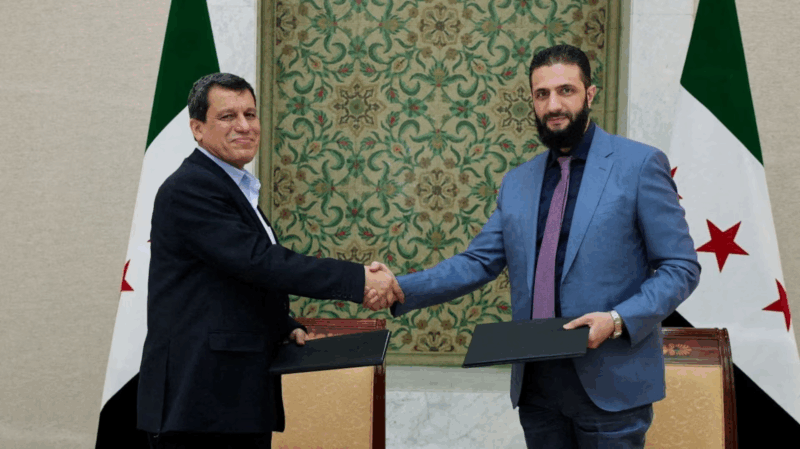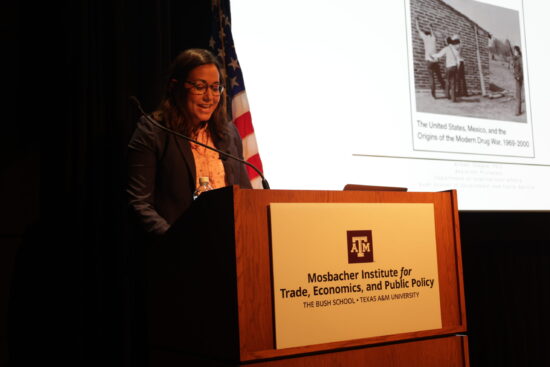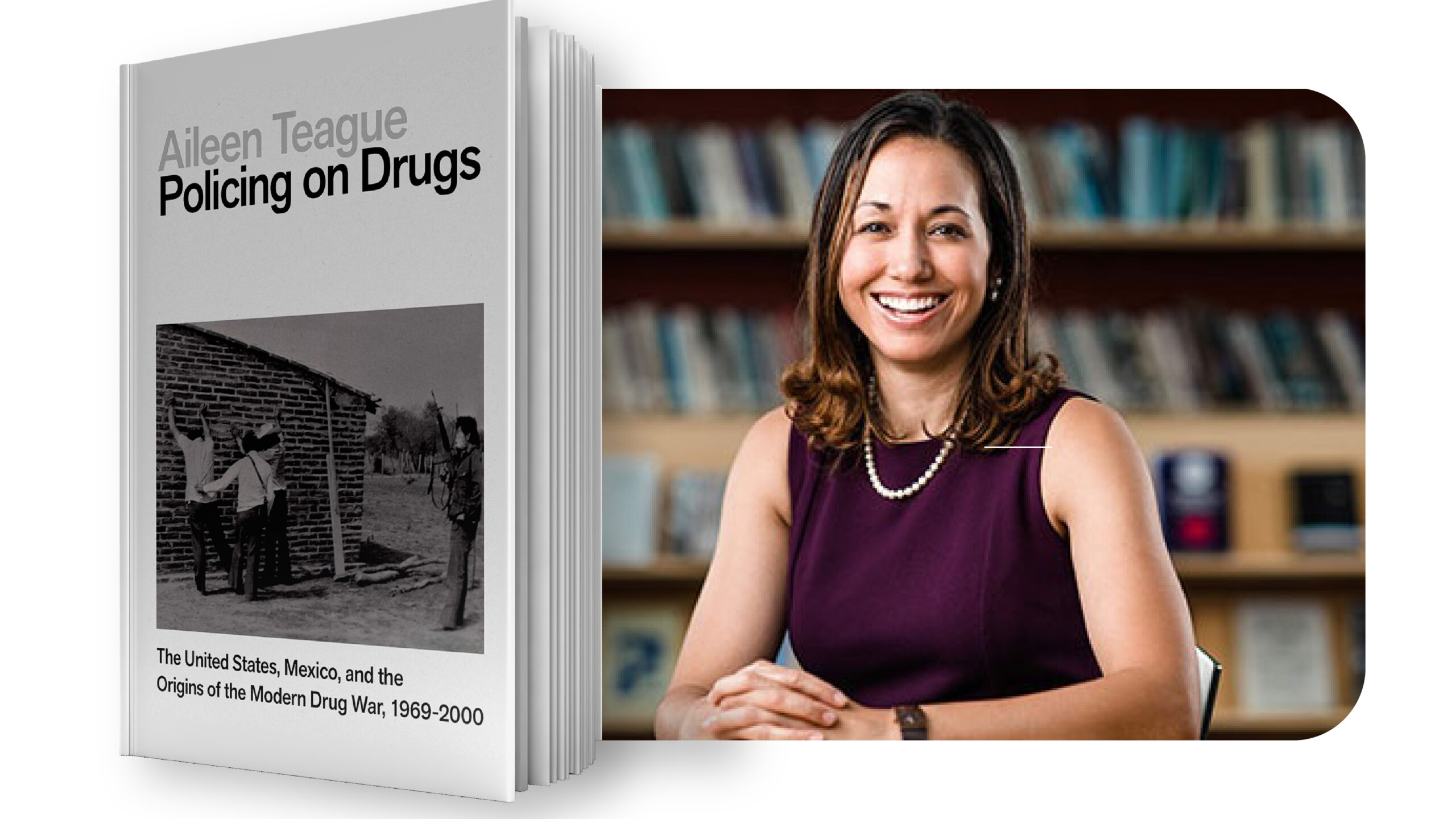ABOUT US
The Mosbacher Institute for Trade, Economics, and Public Policy was founded in October 2009 upon the request of President George H.W. Bush to honor Robert A. Mosbacher Sr., who served as secretary of commerce from 1989 to 1992. The Mosbacher Institute’s Global Value Chains Program applies policy, economics, logistics, and supply chain management approaches to emerging issues of today’s global value chains. The Borders and Migration Program conducts outreach activities and supports multidisciplinary research related to understanding the global and local impacts of cross-border migration and trade. The Institute also publishes policy briefs (The Takeaway) and longer reports (White Papers), conducts original and sponsored research, and supports students through graduate education, programming, and internships.
UPCOMING EVENTS
FOCUS AREAS

The Mosbacher Institute is committed to identifying policies and practices that promote global market integration. Global market integration involves increased economic interdependence among nations and regions arising from reduced trade barriers and improved coordination of fiscal and monetary policies. It has been shown to foster economic growth, raise living standards, and promote world peace. Through our Global Value Chains (GVC) Program we conduct and facilitate interdisciplinary education and research on the emerging issues that GVCs are facing. In our interconnected world, policymakers need to know how to harness the powerful tools of trade to improve living standards here in the United States and in emerging economies.
Faculty Coordinator:
Raymond Robertson
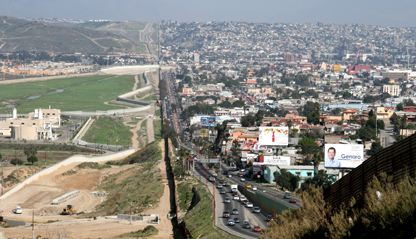
The increasing movement of people, goods, and ideas across geographical borders has put border states under significant pressure to adapt to changing realities. Our interdisciplinary Borders & Migration Program is a research consortium that conducts and shares research on both local and global impacts of international migration and cultural and economic exchange. Through a series of evidence-driven capacity-building efforts, policy outreach activities, high-impact learning opportunities, and scholarly engagement and exchange, the Mosbacher Institute seeks to shape a constructive public debate and to increase the effectiveness of policy choices.
Faculty Coordinator:
Aileen Teague

The Mosbacher Institute takes a fact-based, economic approach to comparing the world’s energy options, evaluating the true costs of energy, encouraging the coordination of global policy responses to energy security, and promoting smarter energy policy. Sound energy policy that balances cheap, clean, and secure energy, while relying extensively on markets, is an essential foundation for economic growth.
Faculty Coordinator:
Eric Lewis
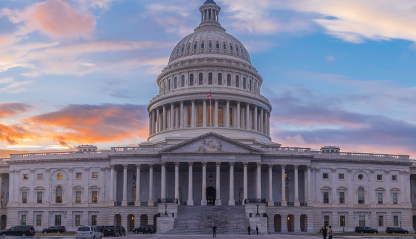
The Mosbacher Institute aims to identify good governance practices and policies in our domestic economy, and to propose solutions to correct failures and inefficiencies in the provision of public services. Good governance increases the efficiency of the public sector and lowers the costs of doing business for the private sector, thereby increasing America’s competitiveness in the global marketplace. The Institute focuses on governance in such key public policy areas as education, health, environment, and emergency management.
Faculty Coordinator:
Lori L. Taylor
MOSBACHER INSTITUTE RESEARCH

August 2025: Migration, Health, and Security: Emergency Care Provision at the U.S.-Mexico Border
By Christine Crudo Blackburn
The increasing humanitarian crisis in the U.S.- Mexico border has drawn international attention to the health conditions of migrants crossing the border. However, little has been said about the challenges faced by the Emergency Medical Services (EMS) and their clinicians. This policy brief highlights the reality of the EMS system in border communities, discussing the financial strain and high expectations placed on their services amid an increasing number of humanitarian needs. The study also examines the mental, financial and political implications of this crisis, spanning from clinicians’ burnout to reduced retention, arguing for acknowledgement of the unique needs of border emergency care services in order to better support both clinicians and patients.



